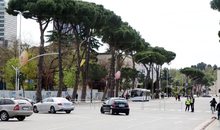
 Flash News
Flash News
Do Albania and Kosovo respect each other?
Nje refleksion nga vizita e Presidentit në Kosovë

by ALBERT RAKIPI
Although it was not expected, even the state visit of the president of the Republic of Albania to the Republic of Kosovo was accompanied by clashes, however sophisticated and "hidden" behind a diplomatic language. Invited by the president of Kosovo, the new head of state, in addition to meetings with his counterpart, the prime minister and the speaker of the parliament of Kosovo, also met with the leaders of political parties, including those of minorities, a practice not unknown in international relations, and in the way diplomacy is developed today.
However, one of the parties, in fact one of the most important parties in Kosovo, the Democratic League of Kosovo, with which the foundation, the liberal democratic and pluralist tradition of Kosovo, as well as its legendary leader, Ibrahim Rugova, is connected, refused to meet with the president of the State of Albania at the headquarters of the parliament, but requested that this meeting take place at the headquarters of the party. A spokeswoman of the LDK, with a chosen diplomatic language, announced that this was a lost chance to meet with the new president of Albania, whom they welcomed at the headquarters of their party.
This "incident" as well as the almost neutral attitude of the president towards a controversial issue, such as the Open Balkans initiative, where Serbia and Albania are flag bearers, while Kosovo (including Montenegro and Bosnia) has refused to join, they were given a new opportunity to express themselves to critics in Albania, but also in Kosovo, be they politicians, analysts or journalists.
The first visit of the new head of state of Albania to the Republic of Kosovo and the controversies or criticisms that accompanied the formal, protocol, but also the substance aspects of this visit, is a good opportunity to observe; firstly, the nature and climate of interstate relations between Albania and Kosovo and, secondly, the importance of diplomacy and the formal aspects of the protocol, which according to a tradition, at least 600 years old, of modern diplomacy, constitutes the laws and procedures in which diplomacy is developed; laws and rules that deal with the essence of diplomacy and are not merely formal aspects. In the case of relatively new states, such as the case of Albania or very new ones, such as the case of Kosovo, the apparently formal aspects
The following article tries to analyze from these two points of view the problems that appeared and were commented upon by the visit of President Begaj to Kosovo.
It is already a public secret that in the relations between Albania and Kosovo there are disagreements on issues that involve, first of all, important political but also economic issues, such as, for example, the "economic wars" for potatoes, or other products at the border . These disagreements that sometimes lead to tensions, if they do not damage the future of these relations, and if they cannot lead to clashes, they can maintain a status quo that is nevertheless harmful and contains risks.
It is not only the Open Balkans initiative that currently divides Albania and Kosovo. The current government in the Republic of Kosovo, but also previous governments, have expressed deep reservations about Albania's foreign policy towards Serbia and, in particular, about the mediating role that Tirana has claimed between Serbia and Kosovo; or the issue of reconciliation between Albanians and Serbs in the Balkans. Kosovo does not want a mediating role of Albania in its relations with Serbia, but wants the USA and the EU as mediators. Likewise, Kosovo does not see reconciliation between Albanians and Serbs in the Balkans as an issue between Albania and Serbia,
As paradoxical as it sounds, it is true to say that, currently, Albania, which historically has not played the role of the mother state towards Kosovo, tries to play this role now that Kosovo is an independent state. Even, in some cases, neglecting this fact and reality to the extent that it sees Kosovo as its own autonomous province. (See "Ehy Albania sees Kosovo as an autonomous Province of hers" Tirana Times ëëë.tiranatimes.com)
In such a context and in such a climate, in which Albania's relations with Kosovo are developing, since its independence, in 2008, the visit of the new president of Albania took place. In the first visit abroad, in a state visit, the new head of state has chosen Kosovo. It is a proper decision, which contains a clear political message, the importance that relations between Albania and Kosovo have as two independent states. It was an important, but still symbolic, diplomatic decision and move.
It is also symbolic of another fact: Without excluding or reducing the role that the president has in the formulation and implementation of foreign policy, in a country like Albania, i.e. in a parliamentary republic, the domain of foreign policy belongs to the prime minister and the government that he leads . The parliament has a different role, the presidency also but, in the end, it is the government that has received the mandate of the government, in addition to the internal policies and the international relations of Albania.
All the institutions and political leaders in Kosovo, starting with President Osmani, it seems clear that they were aware of this fact and everyone showed restraint in not making the subject of talks with the President of Albania controversial issues that divide and not unite Albania and Kosovo. There is no doubt that in the tête-à-tête meetings these issues were discussed and have had and will have the attention of President Begaj.
Special attention should be paid to the public proposal of the President of Kosovo, Osmani, that the two countries sign a treaty in the field of defense. Although there are more than a hundred agreements between the two states, a declaration of strategic partnership, as well as a framework agreement, claimed as a treaty of friendship, between the two countries there is still no Treaty of Friendship and Cooperation as a classical, recognized instrument in diplomacy, international relations and international law.
In his first visit to Kosovo, the President of Albania tried to give another message, that of the union of political parties, when it comes to Kosovo's foreign policy and, in particular, when it comes to Kosovo's relations with Albania. . The president invited all the leaders of the political parties to a joint meeting in the parliament but, as we have seen, this did not happen. It was again an attempt at a political message, which the new Albanian head of state tried to give to the political parties in Kosovo. But it didn't work. The president met the leaders of the political parties in separate meetings. Albania, in fact, has nothing to teach Kosovo in this aspect, if we take into account the fact that during the three decades since the fall of communism, political parties in Albania continue to be involved in a political conflict that has ruined and continues to ruin the future, stability, and development of the country. But this political model of Tirana, no matter how depressing, cannot prevent the head of state from encouraging and working for a conciliatory role, first in Albania, but also in a state visit, as in the case of Kosovo, which is a state of independent, but it is also half of the nation.
While everything went well, the "incident" happened with the LDK, which requested that the meeting be held at its headquarters and not at the parliament. From the "two sides", the meeting place is not just a formal aspect of the protocol, but has a substantive political symbolism. While it is normal that, in a state visit, the head of state invites the parties to the parliament, because it has to do with the state, respecting the institutions, the President of Albania can also go for an informal visit to Pristina and, in this case, he can to go to the headquarters of the LDK, or to other headquarters, just as he can go for a weekend and have lunch with the political leaders, or with his friends. But in a state visit, protocols have their own symbolism related to the state, respect for institutions and hierarchy.
On the other hand, the request of the LDK that the head of state of Albania meet with the president of this party, only at its headquarters, is an attempt to demonstrate power and is in the logic of the struggle for power within Kosovo (is about power and power struggle). But the head of state is far from the battle for power in Albania first, and it would be absurd to think this in other countries, even in Kosovo.
This "incident", as far as it can be called, is one more example that in the relations between two states, sometimes, there is a lack of respect for each other. It is more noticeable in the behavior of the leaders of Albania towards Kosovo, but such a tendency, however small, is not absent in the behavior of Kosovo towards Albania. International relations experts, including the author of these series, have noticed this behavior, especially on the side of Tirana, but it would not be fair to say that this is absent in Kosovo.
From a philosophical/theoretical but also practical level, relations between Albania and Kosovo are relations in transition. From a relationship dominated by nationalist, populist, folkloric, patriotic narratives, which existed until the liberation and recognition of Kosovo as an independent state, we must move towards a relationship between two independent and equal states. They are really two brotherly states, because they belong to the same nation, but without respecting each other, not only cannot the future and cooperation be built, but clashes and disagreements will be inevitable. It is completely like between two brothers, or two sisters. It is impossible to claim that two brothers or sisters love each other if they do not respect each other.
But two states are much more than two brothers. Two states, two societies, two peoples, although they belong to the same nation, cannot love each other and move forward, develop, if they do not respect each other, relying on documents, constitutions, agreements, protocols, rules and laws. And last but not least, state relations are based and developed on the basis of interests. The discovery and development of common interests is of special strategic importance, but also competition, competition, is healthy and necessary in relations between two states, including states that belong to the same nation. Especially.
Latest news

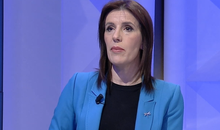
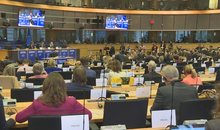

Media: Iran tried to shoot down Trump's plane during the election campaign
2025-06-16 22:04:15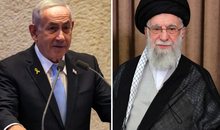
Netanyahu: Eliminating Khamenei would end the conflict with Iran
2025-06-16 21:47:13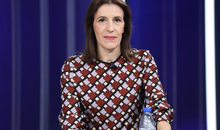
Lala: If the Supreme Court acquits Veliaj, a precedent will be created
2025-06-16 21:34:12

Laura Fazliu wins bronze medal at the World Judo Championships
2025-06-16 21:13:32

Car falls off bridge on Saranda-Delvina road, driver injured
2025-06-16 20:58:56
Tourist from Slovakia drowns near the Rock of Kavaja
2025-06-16 20:33:42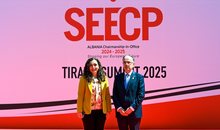

Cases of residential burglaries increase significantly during the summer
2025-06-16 20:19:28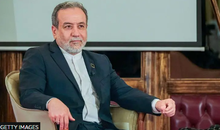
Can Trump convince Netanyahu to stop attacking Iran?
2025-06-16 20:17:52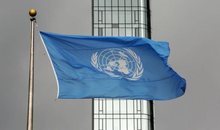
UN financial crisis puts aid for refugees at risk
2025-06-16 19:59:17


Tirana/ 253 complaints for road violations in just one week
2025-06-16 19:24:59

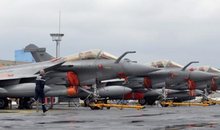
More and more armed drones over the Balkans and no one is watching them
2025-06-16 18:41:28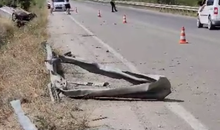
Korça/ Car goes off the road, woman and two children end up in hospital
2025-06-16 18:25:01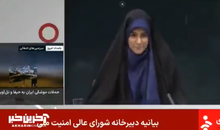
Video/ Iran's state television attacked 'live'
2025-06-16 18:06:21

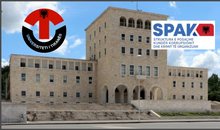

KPA upholds dismissal of Vlora prosecutor
2025-06-16 17:16:43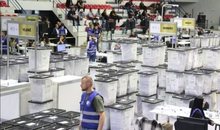
The CEC begins the vote recount for four districts tomorrow
2025-06-16 17:08:19
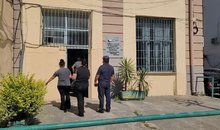
Albanian Railways cuts 47 jobs, maintenance workers affected
2025-06-16 16:43:32
Foods to avoid after 40 for your health
2025-06-16 16:28:08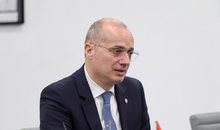
Albania stands by Israel: Iran must stop nuclear activity
2025-06-16 16:09:08
Two foreign citizens arrested in Dhërmi for selling narcotics
2025-06-16 16:07:54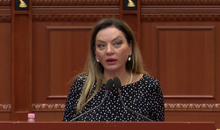

Transporting illegal immigrants, 24-year-old arrested in Saranda
2025-06-16 15:42:05
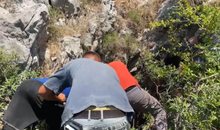
NAME/ Elderly man found dead inside a cave in Lezha
2025-06-16 15:15:08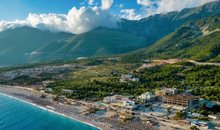


Britain appoints first woman to head intelligence service
2025-06-16 14:49:36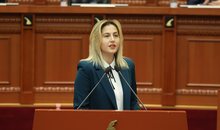

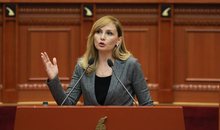
"Passive majority"/ Tabaku: SP has no political will to advance integration!
2025-06-16 14:12:34
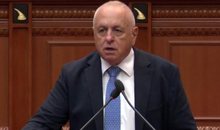
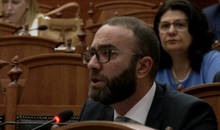
Bardhi clashes with Spiropali: Close the Parliament to have lunch in Greece
2025-06-16 13:34:02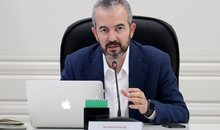

Accused of murder, Europol searching for Albanian criminal (NAME)
2025-06-16 13:06:17
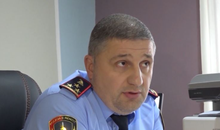

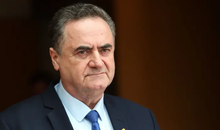


"Karma finds its way", to whom is Veliaj's coded message from prison addressed?
2025-06-16 11:59:34
Tragic in Italy! Train hits and kills 19-year-old Italian-Albanian
2025-06-16 11:50:50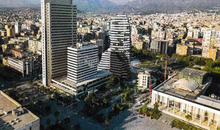
Map of towers: How the government is brutally rewriting Tirana
2025-06-16 11:37:09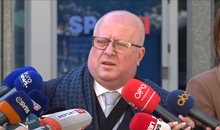


Earthquake hits northern Macedonia, tremors felt in Albania
2025-06-16 11:00:48
Spahia: Two mandates in Shkodra were stolen from the DP
2025-06-16 10:31:58
"Partizani" file/ Berisha does not appear in SPAK for health reasons
2025-06-16 10:26:43

Belgian tourist injured in Gjipe, boat driver arrested
2025-06-16 10:01:03
NAME/ Drug dealer arrested in Vlora
2025-06-16 09:47:10



Attacks on Iran/DW: German policy in the Middle East under pressure!
2025-06-16 09:15:05
Von der Leyen: Iran must not have nuclear weapons
2025-06-16 09:06:17


Labor market alarm, Albanian workers' skills are 37% of those in the EU
2025-06-16 08:34:47
The Assembly meets in plenary session today, what is expected to be discussed
2025-06-16 08:25:30
35-year-old man shoots himself with a gun in Vlora, sent to 'Trauma'
2025-06-16 08:11:58
Mot i kthjellët në të gjithë vendin, ja parashikimi për këtë të hënë
2025-06-16 07:57:23
Posta e mëngjesit/ Me 2 rreshta: Çfarë pati rëndësi dje në Shqipëri
2025-06-16 07:44:49
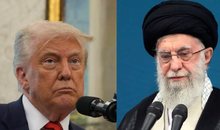
Trump vetoes Israeli plan to assassinate Iran's supreme leader
2025-06-15 21:38:01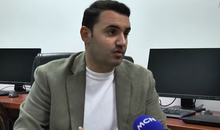
Vote recount in Tirana, Këlliçi: We want Alimehmet's mandate
2025-06-15 21:17:41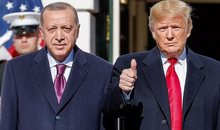
Erdogan calls Trump: We are ready to mediate for Iran
2025-06-15 20:55:34
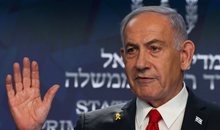
Netanyahu says he attacked Iran to prevent 'nuclear holocaust'
2025-06-15 20:02:04
Migrant agreements: What benefits Kosovo and why are they criticized?
2025-06-15 19:43:08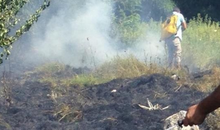
Gjirokastër/ Fire burns three hectares of grass near the Kardhiqi Bridge
2025-06-15 19:22:34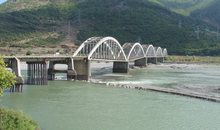

Gattuso appointed new Italy national team coach
2025-06-15 18:34:17
Over 400 people have been killed so far in Israeli attacks on Iran
2025-06-15 18:15:47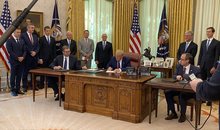
Trump warns of return to Kosovo-Serbia issue: Biden damaged it
2025-06-15 17:46:52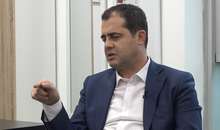
Bylykbashi: Current electoral system is toxic
2025-06-15 17:25:20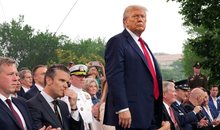
Trump vows for Iran-Israel deal, mentions Kosovo case with Serbia
2025-06-15 16:59:02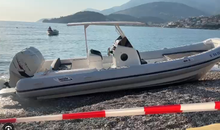
German tourist injured on Gjipesa beach, hit by a dinghy's propeller
2025-06-15 16:40:31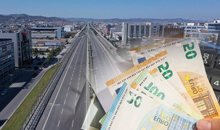

Iran attacks Israel with ballistic missiles
2025-06-15 15:48:49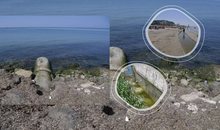
Fecal beach in Durrës, the other side of the tourist miracle
2025-06-15 15:30:57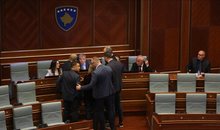
The attempt to constitute the Assembly in Kosovo fails again
2025-06-15 14:59:10
Ish-presidentit francez Sarkozy i hiqet medalja e Legjionit të Nderit
2025-06-15 14:58:46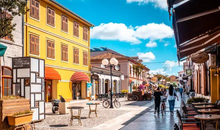
Shkodra, with the highest population contraction after the Census
2025-06-15 14:31:47

Caused a fatal accident and left the scene, 35-year-old arrested in Lezha
2025-06-15 13:40:10